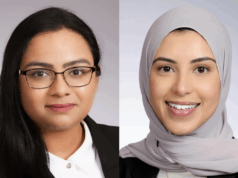Cancer survivors of childhood brain tumours show significant deficits in intelligence, educational achievement and employment, even decades after treatment, an unprecedented study at St Jude Children’s Research Hospital has found. The researchers said their findings will help guide efforts to prevent and alleviate such problems.
Tara Brinkman, an assistant member of the St Jude Departments of Epidemiology and Cancer Control, and of Psychology, led a team of researchers whose findings have been published in the Journal of Clinical Oncology.
Researchers tested 224 adult survivors of childhood brain tumours, such as medulloblastoma, who were aged 19 to 53 years. The patients had been treated with radiation to the whole brain and spinal cord; or radiation only to the specific location of the tumour; or with no radiation. Some patients had also been treated for a build-up of cerebrospinal fluid in the brain, called hydrocephalus, by having a shunt installed to drain the fluid.
The researchers tested the survivors’ intelligence, memory, attention and academic ability. Participants also completed a questionnaire about the impact of cognitive problems on daily life and reported on their educational attainment, employment and whether they live independently.
The statistical analysis revealed that survivors treated with craniospinal radiation had nearly three times the risk of severe impairment in intelligence, compared with survivors not treated with radiation; as well as similar impairments in other cognitive skills like attention and memory.
The survivors were also at nearly four-fold increased risk of severely impaired academic skills. In addition, survivors were more likely to be unemployed and to be living with parents or caretakers. Hydrocephalus was associated with poor cognitive function, even decades after its treatment.
“Past studies indicated that treatment for paediatric brain tumours placed patients at risk for cognitive impairment,” Brinkman says. “We knew that craniospinal irradiation was a significant risk factor for poor cognitive outcomes. But those studies had drawbacks. Some evaluated survivors only five or 10 years off therapy, and many included very small groups of patients. The only other report on outcomes during adulthood was based on survivors’ self-report of their own perception of cognitive impairment.”
“Our study was the most comprehensive analysis of a large cohort of adult survivors of paediatric brain tumours, with direct assessment of their cognitive functioning and the resulting impact on social attainment,” Brinkman says. “Also, it was the first to report on the long-term outcomes for multiple types of brain tumours.”
The analysis also offered insight into the comparative long-term effects of traditional radiation therapies that target the whole brain, versus newer “conformal” radiation therapy that more precisely targets the tumour with a 3-D beam.
“We found that, at this point of follow-up, there were not significant differences between the groups,” Brinkman says. “But we attribute this finding to the fact that those treated with the older methods had been followed for much longer than those with the 3-D method. Our hypothesis is that, as we continue to follow survivors treated with the newer techniques, we are going to see the benefit of this approach.”
The researchers also found that the survivors self-reported significantly less impact of the treatment on their lives than the testing revealed.
“This shows that it’s important not to rely on one assessment approach versus another,” Brinkman says. “We can’t necessarily say that one is right and one is wrong. Both give us valuable information when we think about potential interventions to help the survivors.”
Brinkman says that self-report of lower impact “may be because these survivors are aware of their deficits and have learned skills to compensate for them, and therefore report that the problems are not adversely impacting their daily lives. The other hypothesis is that because many of our survivors are severely cognitively impaired, they may not be aware of the impact of the deficits on their daily lives.”
Brinkman says that the findings will help in developing screening techniques to reveal cognitive problems in survivors and guidelines on following up on their treatment—not only at St. Jude, but at treatment centres across the country.
Importantly, the findings will also aid in informing intervention efforts to prevent or alleviate cognitive problems in patients.
“We hope to help these kids while they are on therapy, to prevent the onset of some of these neurocognitive difficulties,” Brinkman says. “For the survivors who have finished therapy, we want to intervene to mitigate such problems, so they don’t develop into the severe problems we are seeing with the current adult survivors.”
The research by Brinkman and her colleagues was part of the unique St. Jude Lifetime Cohort Study (St. Jude LIFE), which brings long-term childhood cancer survivors back to the hospital for regular health screenings throughout their lives. Thousands of participants have undergone comprehensive health evaluations through St. Jude LIFE. The study tracks a wide range of health outcomes, and the findings should help cancer survivors learn more about their individual health needs and provide researchers with novel insights into the late effects of cancer therapy.
The other authors were Matthew Krasin, Wei Liu, Gregory Armstrong, Rohit Ojha, Zsila Sadighi, Pankaj Gupta, Cara Kimberg, Deokumar Srivastava, Thomas Merchant, Amar Gajjar, Leslie Robison, Melissa Hudson and Kevin Krull, all of St Jude.
The research was supported by grants (CA195547, CA21765) from the National Cancer Institute at the National Institutes of Health and ALSAC.












